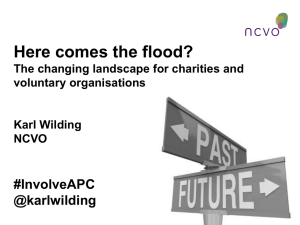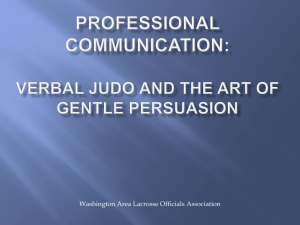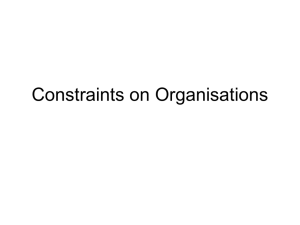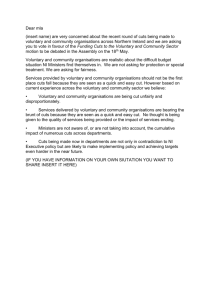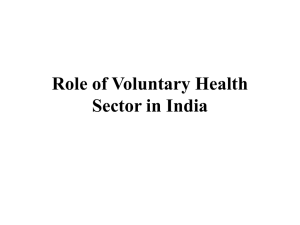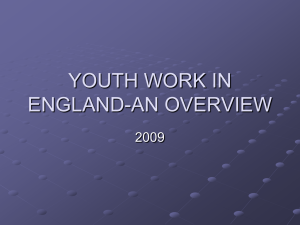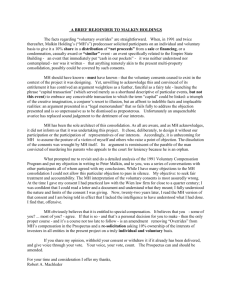Equal opportunities monitoring form
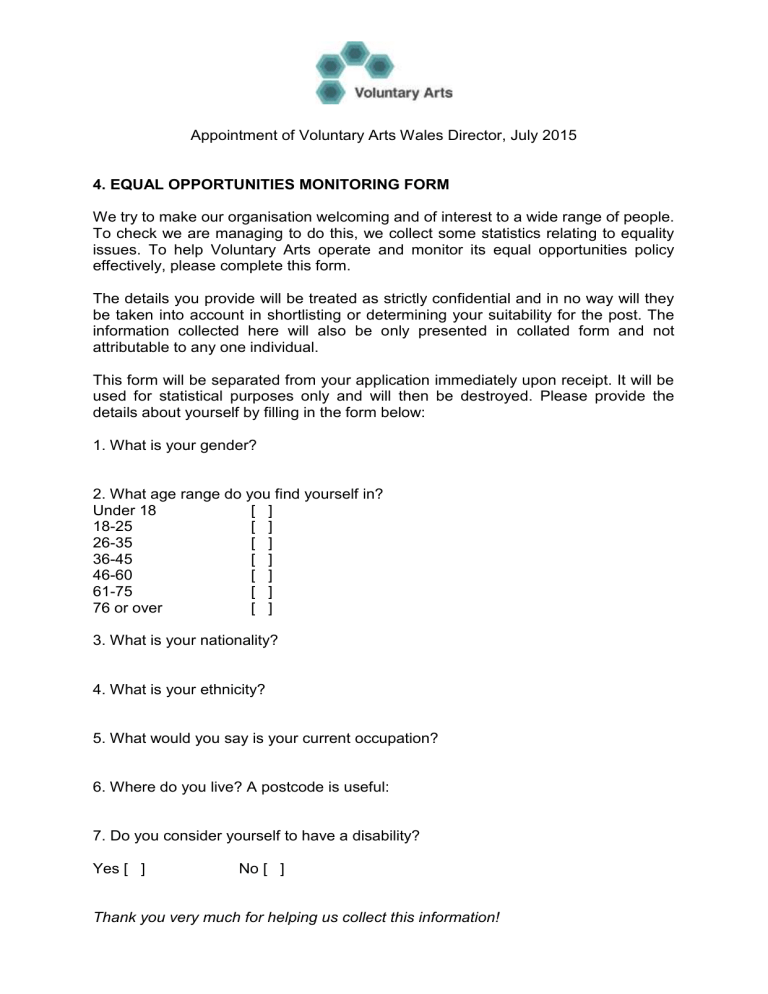
Appointment of Voluntary Arts Wales Director, July 2015
4. EQUAL OPPORTUNITIES MONITORING FORM
We try to make our organisation welcoming and of interest to a wide range of people.
To check we are managing to do this, we collect some statistics relating to equality issues. To help Voluntary Arts operate and monitor its equal opportunities policy effectively, please complete this form.
The details you provide will be treated as strictly confidential and in no way will they be taken into account in shortlisting or determining your suitability for the post. The information collected here will also be only presented in collated form and not attributable to any one individual.
This form will be separated from your application immediately upon receipt. It will be used for statistical purposes only and will then be destroyed. Please provide the details about yourself by filling in the form below:
1. What is your gender?
2. What age range do you find yourself in?
Under 18
18-25
26-35
[ ]
[ ]
[ ]
36-45
46-60
61-75
[ ]
[ ]
76 or over
[ ]
[ ]
3. What is your nationality?
4. What is your ethnicity?
5. What would you say is your current occupation?
6. Where do you live? A postcode is useful:
7. Do you consider yourself to have a disability?
Yes [ ] No [ ]
Thank you very much for helping us collect this information!
Voluntary Arts Equal Opportunities Policy
1. Statement of Equal Opportunities Policy
1.1 Voluntary Arts recognises the value that diversity brings to society and to the voluntary arts in particular and is keen to champion and celebrate diversity.
Voluntary Arts acknowledges that discrimination exists in many areas of our society today and undertakes to play its part in reducing and eliminating such discrimination where it is within its sphere of influence to do so.
1.2 Voluntary Arts will use its best endeavours not to discriminate on the grounds of race, ethnic or national origins, gender, gender identity, marital or family status, sexual orientation, age, disability, religion and belief, employment status, trade union membership, political beliefs or socio-economic status. Voluntary Arts wishes to eliminate discriminatory practices, and remove barriers to genuine equality of opportunity wherever possible.
1.3
This policy applies directly to Voluntary Arts’s Board of Trustees, its paid staff whether salaried or contracted, and its volunteers.
1.4 Voluntary Arts must conform to all relevant current legislative requirements in each country of operation.
2. Scope and Review
2.1 The following areas fall within the scope of this policy and will be discussed in greater detail below:
employment and recruitment of staff and volunteers
training of staff and volunteers
events and activities
publications
2.2 Implementation of the Policy is the direct responsibility of the Chief Executive and cannot be delegated. All aspects of this policy and indeed of the complete set of
Voluntary Arts activities are monitored regularly by the Diversity Panel which is chaired by the Chief Executive and which has in its membership at least one
Trustee, staff and at least one external representative.
2.3 The Policy will be reviewed and revised as required at least every 3 years.
2.4 Voluntary Arts is committed to ensuring that its clients, volunteers and staff in
Wales have equal right to services through the medium of Welsh in Wales as through the medium of English. This specific commitment is detailed in the Voluntary
Arts Welsh Language Policy.
2.5 Voluntary Arts is committed to working to improve equality throughout its activities. Specific commitments will be detailed in a series of action plans (eg
Voluntary Arts Race Equality Action Plan, Voluntary Arts Disability Action Plan).
3. Employment and recruitment of staff and volunteers
3.1 Voluntary Arts is committed to ensuring that no applicant, employee or volunteer receives less favourable treatment on the grounds of race, ethnic or national origins, gender, gender identity, marital or family status, sexual orientation, age, disability, religion and belief, employment status, trade union membership, political beliefs or socio-economic status.
3.2 To this end Voluntary Arts will take every reasonable, practical step to ensure that:
when personnel decisions are made, the only personal characteristics taken into account are those which are necessary for the requirements and proper performance of the work involved, as well as being consistent with relevant legislation.
when a personnel decision is made about an individual, the decision is based solely on an assessment of the capability and suitability of that individual and not on any stereotype.
Further details are outlined in the Voluntary Arts Recruitment and Selection
Procedure.
3.3 Voluntary Arts is committed to moving all its offices to fully accessible premises as soon as possible.
4. Training of staff and volunteers
4.1 An Equal Opportunities Policy will not operate itself. It requires commitment, understanding and training.
4.2 Voluntary Arts is committed to ensuring that its staff, Board and other volunteers are trained and regularly updated to enable the Equal Opportunities
Policy to be implemented.
5. Events and activities
5.1 Voluntary Arts feels that good equal opportunities practice is essential for the success of its activities, particularly events to which the general public are invited. It is especially important to guard against the possibility that the choice of venue or the cost of attending might prevent people taking part in Voluntary Arts events.
5.2 Voluntary Arts will seek to achieve this in the following ways:
For public events, only venues that conform to good practice in relation to access as described by the Equality Act will be used
For such events only neutral venues will be used
For such events, if prices are charged, concessionary rates will be made available for all those who would genuinely have difficulty in attending because of cost
For such events, all reasonable steps will be taken to address barriers which may prevent disabled people from attending. These may include but are not limited to signage, translation, PA/carers costs, specialised transport or accommodation.
Accessibility features and the availability of assistance made per above, will be mentioned in all publicity
6. Publications and Communications
6.1 Voluntary Arts wants to ensure that its publications are as accessible as possible, whether in printed or electronic format.
6.2 Voluntary Arts will make all its written material available as plain text as a matter of course and where ever possible will provide it in other formats as requested to meet indiv iduals’ particular access needs.
6.3 The availability of other formats will be clearly highlighted on all Voluntary Arts publications
6.4 Voluntary Arts will follow best accessibility practice in the use of size, font, colour and layout.
6.5 Voluntary Arts recognises the need to produce materials in languages other than English where this is a legal requirement and in cases where not doing so would prohibit access to its services. In responding to this need Voluntary
Arts will actively seek out partner organisations.
6.6 Voluntary Arts aims to use Plain English in all its publications. This approach keeps jargon to a minimum and uses simple, friendly language, spelling out acronyms and changing arts and policy terminology into simple terms where possible.
6.7 Voluntary Arts will ensure the maintenance of a website that meets current best practice in relation to accessibility eg. w3c
6.8 Voluntary Arts will be sensitive to local political and cultural issues in its use of images, colours and symbols.
7. Monitoring Equal Opportunities practice
7.1 In addition to evaluating conformance to this policy Voluntary Arts believes that it is important to monitor equal opportunities practice within its activities.
7.2 The Diversity Panel has responsibility for devising benchmarks and evaluating progress against them. It will report its findings to the Board on an annual basis.
7.3 To monitor progress on improving the openness of events and recruitment, participants and applicants will be asked to provide information relating to equality issues. The information collected will be only presented in collated form and not attributable to any one individual.
Approved by the Voluntary Arts Network Board of Directors, 25 October 2012
Review by October 2015
